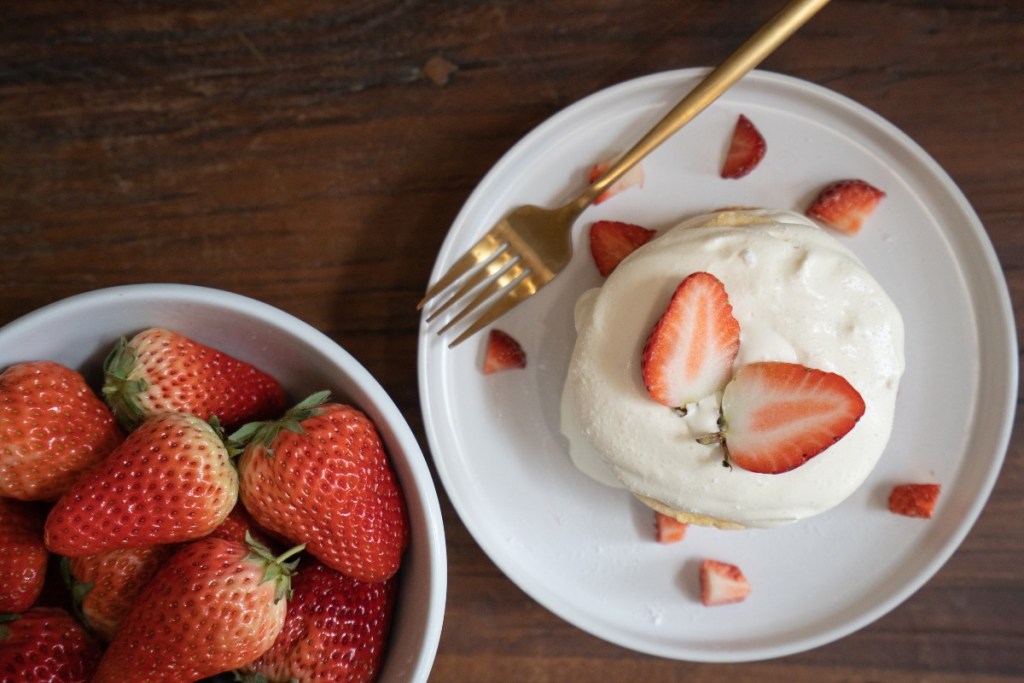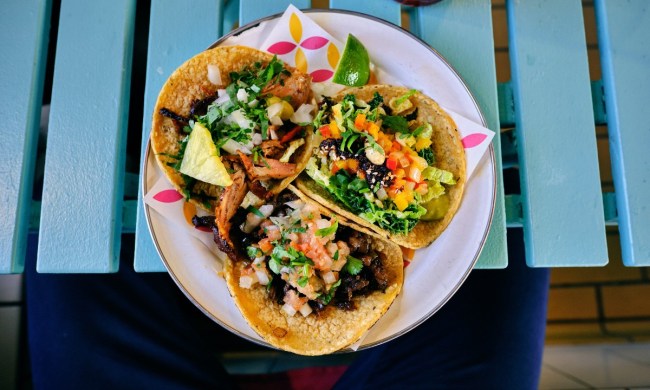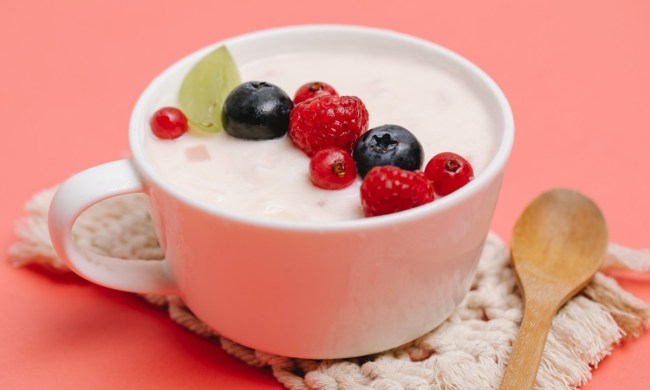Erratic diets, stress and inactivity can tie our digestive system in knots, leaving us feeling bloated and lethargic. While there is no definitive research about the effectiveness of colon cleansing, sometimes it feels good to flush things out and get our systems moving again.
Google is full of fad diets and cleanses that swear they’ll have you feeling better in no time. However, they don’t all help you in the long run. The best way to be kind to your stomach is to make simple changes to your diet by adding in colon-cleansing foods and limiting things known to cause stomach irritation. Consider this your four-step guide on how to clean your gut (and keep it clean).

Drink plenty of water
One of the first things people will tell you if you’re struggling with gastrointestinal issues is to increase water consumption. It’s good advice. Drinking water during a meal helps aid in digestion, according to scientists. It can also reduce bloating and constipation and prevent you from overeating. Drinking water steadily throughout the day keeps us hydrated and increases the amount of liquid entering the digestive system leading to a more regular digestive flow and softer stool.
Most doctors recommend drinking at least eight cups of water per day, but if you’re more active, you’ll likely need more than that. For those who are constantly forgetting to drink those crucial glasses, consider using apps such as Daily Water Tracker Reminder and Hydro Coach, to help you meet your goals.
Eat a fiber-rich diet
Many colon-cleansing foods are high in fiber because fiber helps food move more quickly through the large intestine. It also absorbs water and makes stools softer, so they pass more easily and prevent constipation. Some of the best colon-cleansing foods are apples, beans, and leafy greens.
If you’re struggling to get enough fiber in your diet, we recommend try adding Benefiber to your water. It’s tasteless, so you’ll increase your fiber intake without even noticing. When adding a fiber supplement to your diet, be sure to start slowly to prevent bloating and not overdo it. Ingesting too much fiber — especially with insufficient water — can cause constipation. Women should aim for 21 to 25 grams of fiber per day, and men should try to get about 38 grams per day. Every person is different, so listen to your body to determine how to adjust your consumption.

Try probiotics
Probiotics are live bacteria and yeast. You may be shocked to see the word “bacteria” on a list about how to clean your gut since the word tends to carry a negative connotation. However, probiotics are a good form of bacteria. We already have trillions of bacteria in our guts helping us break down food, and having the right balance is good for overall health. Probiotics are essential to making this happen.
They can help you clean your gut and keep it healthy by improving the efficiency of digestion. In turn, you’ll likely find you don’t have pesky and uncomfortable issues like diarrhea, irritable bowel syndrome, and inflammation, according to microbiologists. Colon-cleansing foods with probiotics include yogurt, cottage cheese, and kimchi.
Nix sodium
Salty foods can be so satisfying, but too much sodium causes your body to retain water, which leaves you feeling bloated. Consuming excessive sodium also increases your risk of high blood pressure, so it’s good to cut down on it whether you’re trying to clean your gut or not. The FDA suggests limiting sodium intake to 1 teaspoon of salt per day, so on your next grocery trip, look for low-sodium versions of your favorite foods, like soups and tomato sauces. You can also try making red sauces at home and buying fresh or frozen veggies, as canned products often have salt added as a preservative.
If you often feel bloated or constipated, it may be time to try a little guy cleansing. Fruits, beans, and Greek yogurts are colon-cleansing foods. Others, such as those high in sodium, can leave you feeling bloated and backed up. Learning how to clean your gut is a bit of trial and error. Some people may be able to tolerate more sodium or fiber than others, so take your time to experiment and figure out what works for you. Your doctor or a nutritionist can also help you with this process, so don’t hesitate to reach out to a professional.
BlissMark provides information regarding health, wellness, and beauty. The information within this article is not intended to be medical advice. Before starting any diet or exercise routine, consult your physician. If you don’t have a primary care physician, the United States Health & Human Services department has a free online tool that can help you locate a clinic in your area. We are not medical professionals, have not verified or vetted any programs, and in no way intend our content to be anything more than informative and inspiring.



